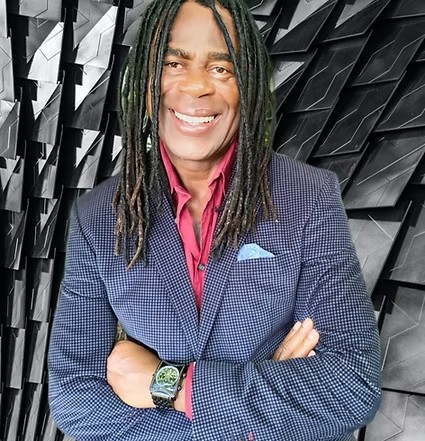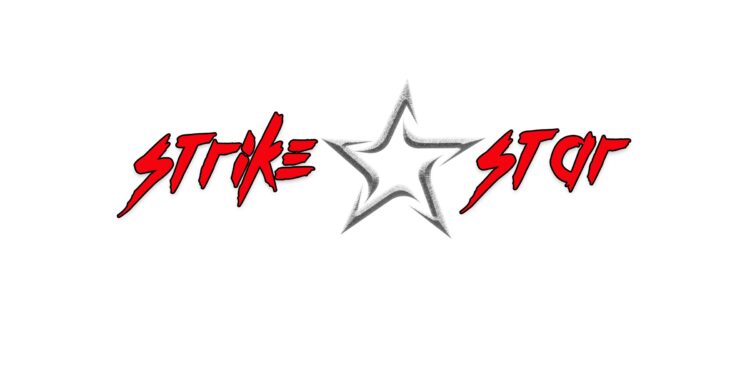Started in 2023 by Strike Star co-founders Ricky Lee and Steven Golding, in memory of the late producer and mentor Paul Eckstein, a small workshop has grown into a remarkable initiative blending charity with creativity. Rooted in its mission to support underserved storytellers, the programme provides not only education but also mentorship and resources to voices too often excluded from mainstream narratives. Two years on, its impact is being felt well beyond its modest beginnings.
Remembering Paul Eckstein

When Paul Eckstein, acclaimed producer and co-creator of Godfather of Harlem, passed away in 2023, the industry mourned more than just the loss of a skilled storyteller. Eckstein had been a mentor, an advocate, and a relentless champion of those on the margins of Hollywood.
Friends and colleagues described him as someone who believed storytelling was not the privilege of a few but the right of all. He spoke often of the need to “hold open the door” for those who came from overlooked backgrounds—immigrants, first-generation Americans, working-class voices, and artists outside the industry hubs.
It was this philosophy that inspired Ricky Lee and Steven Golding, co-founders of Strike Star Productions, to create a workshop that honoured Eckstein’s legacy. They envisioned a space where raw talent could be nurtured, where craft could be taught, and where aspiring writers and filmmakers from underserved communities could access mentorship without prohibitive cost barriers.
Founding vision: A charitable workshop with professional rigour
The Strike Star Workshop launched in late 2023 with a dual mandate: to function as a creative incubator and to remain firmly grounded in its charitable purpose. Unlike many industry fellowships that are tied to commercial studios, this workshop was designed to prioritise community impact.
The co-founders rejected the idea of exclusivity based on résumés or networks. Instead, they focused recruitment on potential—looking for storytellers with lived experiences, fresh perspectives, and a commitment to sharing narratives that might otherwise remain untold.
Applicants were invited to submit a one-page story idea or short script extract. Selection was based less on polish and more on voice. As Golding explained in an early interview:
“Paul believed that authenticity was the only non-negotiable. You can teach structure, you can teach pacing, but you cannot teach lived truth. That’s what we look for.”
The workshop’s structure combined classroom teaching, one-to-one mentorship, peer review, and practical industry introductions. Importantly, all sessions and materials were free, funded by donations and Strike Star’s own production revenues.
Education at the core
From its first cycle, education was central. The curriculum was designed to mirror professional writers’ rooms while adapting to the varied backgrounds of participants. Modules included:
- Story structure and world-building – Teaching fundamentals while encouraging cultural specificity.
- Character development – Emphasising the nuances of underrepresented voices.
- Dialogue and authenticity – Allowing writers to trust their vernacular rather than conform to the “Hollywood standard.”
- Pitching and industry navigation – Equipping participants with practical skills to present their work to executives and investors.
- Production basics – Helping storytellers understand budgets, crews and the logistics of moving from script to screen.
Guest lecturers ranged from established showrunners to independent filmmakers, each giving their time pro bono in Eckstein’s memory.
One recurring feature of the workshop was its “script swap,” where participants exchanged drafts and provided feedback in a structured, supportive environment. Many described this as transformative—an exercise that not only sharpened writing but also built confidence in giving and receiving constructive criticism.
Mentorship: Passing the torch
Perhaps the workshop’s most defining feature was its mentorship programme. Each participant was paired with an industry professional—writers, producers, or editors—who guided them throughout the six-month cycle.
Mentors included television veterans, emerging directors, and even alumni from other diversity programmes. The common thread was a willingness to invest time and energy in nurturing talent without expecting financial return.
For many participants, mentorship meant more than just technical advice. It offered a rare glimpse into the day-to-day realities of the industry, from navigating rejection to balancing artistic integrity with commercial demands. One mentee from the 2024 cohort reflected:
“It wasn’t just that my mentor helped me polish a script. She helped me believe that my story, about my grandmother migrating from Haiti, was worth telling at all. That changed everything.”
Resources: Levelling the playing field
Education and mentorship alone cannot eliminate barriers. Recognising this, the Strike Star Workshop went further by providing practical resources:
- Access to software – Free licences for industry-standard writing and editing tools.
- Workspace – A dedicated co-writing space in Los Angeles and satellite sessions online for remote participants.
- Stipends – Small grants to cover transportation, childcare, or lost work hours.
- Networking events – Carefully curated mixers introducing participants to agents, producers and festival organisers.
These resources were deliberately structured to remove common hurdles. By alleviating financial and logistical pressures, the workshop enabled participants to focus on creativity rather than survival.

Impact: Stories taking flight
By 2025, just two years after launch, the Strike Star Workshop had supported over 60 storytellers. Several had already made tangible breakthroughs:
- A Nigerian-American participant secured funding for a short film exploring second-generation identity, premiering at Tribeca.
- A Latina playwright adapted her workshop script into a podcast series picked up by a regional radio network.
- Two alumni collaborated on a documentary about eviction in Los Angeles, screened at community centres before drawing interest from public broadcasters.
These successes underscored the workshop’s ethos: not every graduate would land a Netflix deal, but each would leave empowered, better equipped, and more connected than before.
Beyond Hollywood: Global resonance
Though rooted in Los Angeles, the workshop quickly attracted attention abroad. Online sessions enabled participation from Kenya, Jamaica, and the Philippines. This expansion aligned naturally with Paul Eckstein’s vision of storytelling as global citizenship.
Ricky Lee described receiving a message from a participant in Nairobi:
“She told us the workshop gave her the courage to start a local storytelling club in her neighbourhood. That’s impact far beyond what we imagined.”
Plans are now underway to establish satellite hubs in East Africa and the Caribbean, regions with vibrant oral traditions but limited access to structured film education.

Challenges and sustainability
Like any non-profit initiative, the workshop faces sustainability challenges. Funding remains a constant concern, as donations fluctuate and Strike Star’s commercial revenues are unpredictable.
To address this, the founders established a dedicated endowment fund in 2024, aiming to ensure continuity regardless of the entertainment industry’s cycles. Alumni have also begun contributing, pledging a portion of their future earnings to support the next generation.
Another challenge lies in maintaining quality as the programme grows. With rising demand, there is pressure to scale quickly. But Golding insists expansion must remain measured:
“If we chase numbers, we risk losing intimacy. Paul valued deep connection, not mass production. That must remain our compass.”
Why it matters
The Strike Star Workshop embodies a shift in how the industry views access and inclusion. Rather than waiting for systemic change, it creates micro-ecosystems where equity is practised, not promised.
Its model challenges assumptions about who gets to tell stories, who receives training, and whose voices deserve to be heard. By providing tangible support, it undercuts the argument that talent from underserved backgrounds simply needs to “work harder.”
In doing so, the workshop honours not only Paul Eckstein’s legacy but also the broader principle that storytelling thrives when it is diverse, authentic, and rooted in lived experience.
Looking forward: the next chapter
As of 2025, the Strike Star Workshop is preparing its fourth cohort. Plans include:
- Expanding online modules with multilingual access.
- Developing a partnership with film schools in Lagos and Kingston.
- Launching an annual showcase festival to present alumni work to industry decision-makers.
- Establishing a formal scholarship in Paul Eckstein’s name for long-form screenwriting.
Each step reinforces the workshop’s dual identity: local in community impact yet global in ambition.
Longread reflections: a 21st-century legacy
At its heart, this initiative is about continuity. Paul Eckstein may no longer be here to mentor directly, but his ethos reverberates in every workshop session, every script draft, and every career breakthrough.
The workshop demonstrates how legacy can be operationalised—not as nostalgia, but as a living, evolving force. By aligning charity with professional excellence, it offers a blueprint for others in the creative industries.
In an era when representation remains contested, the Strike Star Workshop proves that grassroots action can seed systemic change. It is not just training storytellers; it is cultivating resilience, voice, and community.
REFH – Newshub, 27 August 2025




Recent Comments